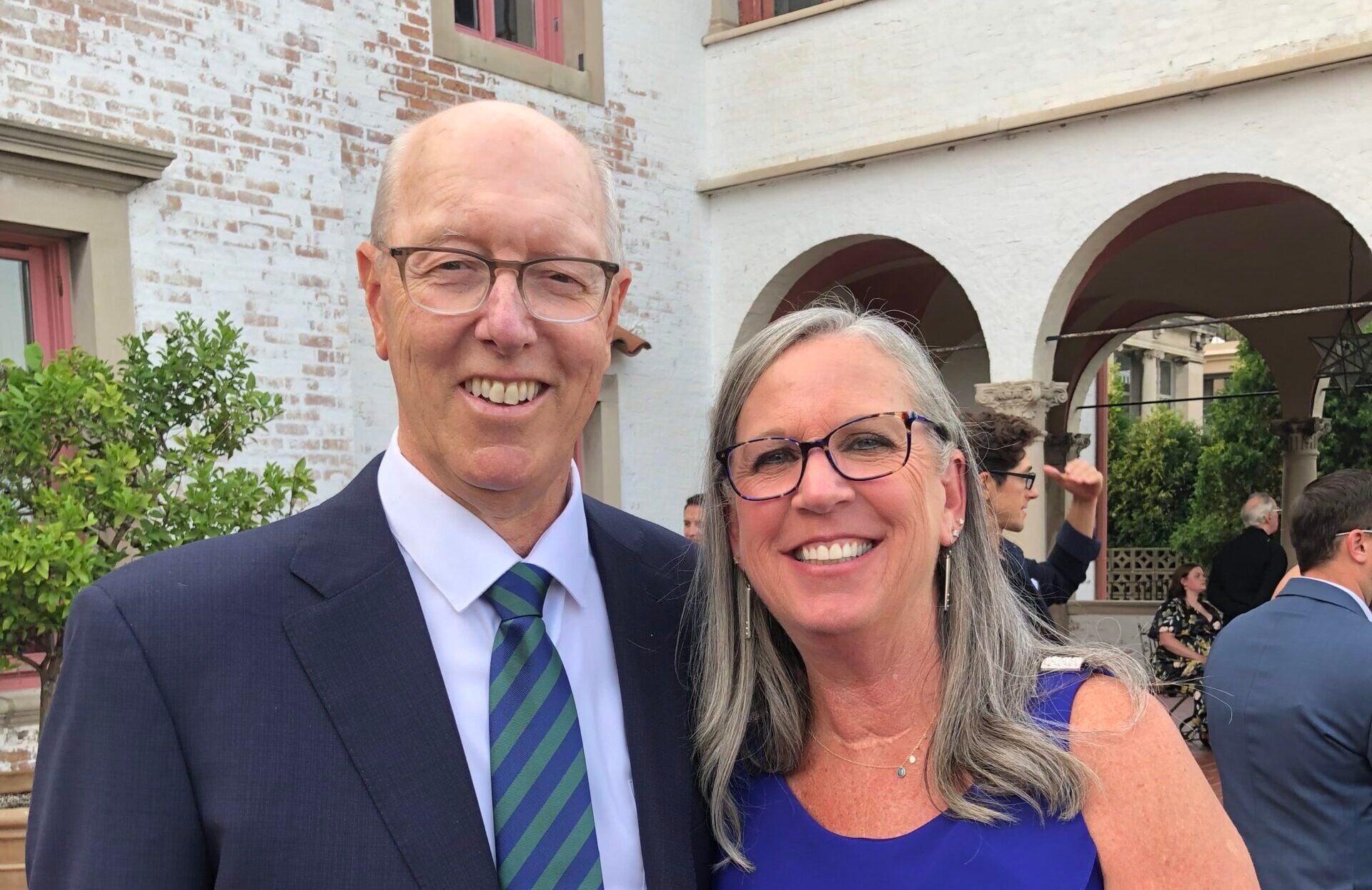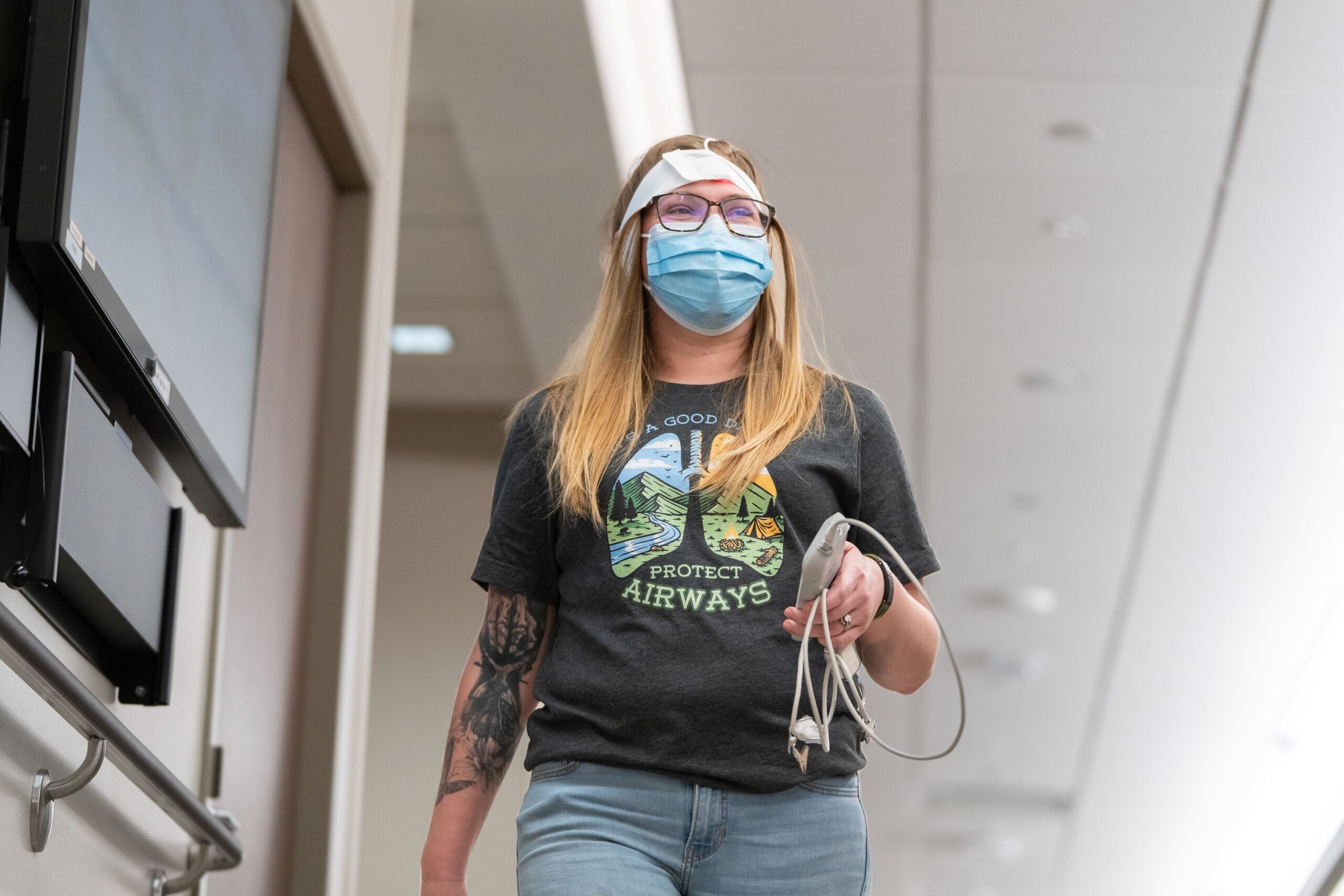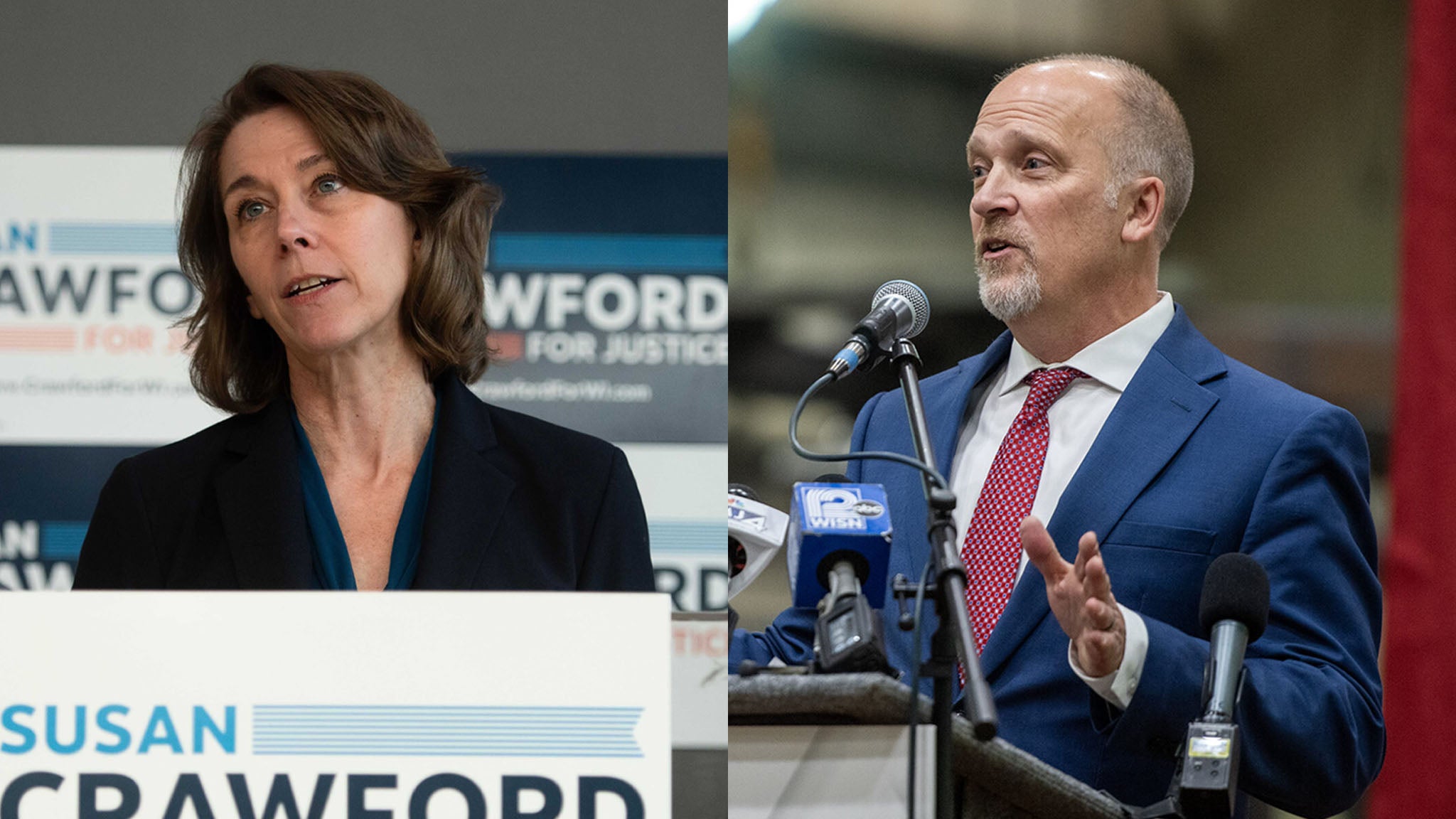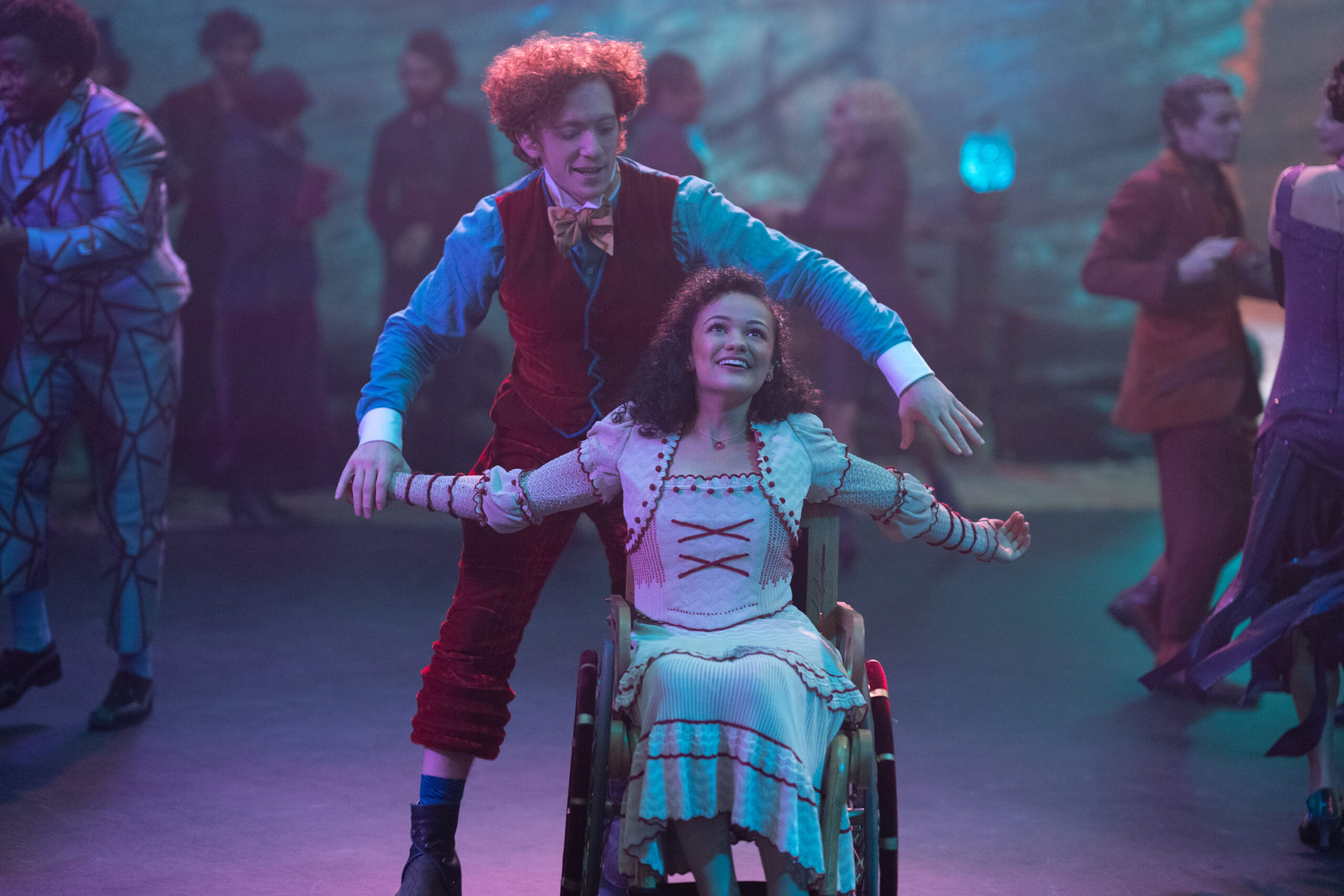Jeff Kaul met Deb Kness, the woman who would eventually give him her kidney, about 20 years ago.
Kaul and Kness both had daughters who played soccer in the Milwaukee area. From watching their daughters play youth-level soccer at 12 years old all the way to playing at the University of Wisconsin-Milwaukee, Kaul and Kness took a lot of road trips together.
“So, we know each other pretty well,” Kaul said recently on WPR’s “The Larry Meiller Show.”
Stay informed on the latest news
Sign up for WPR’s email newsletter.
But Kaul largely kept to himself that he had polycystic kidneys, which is when cysts grow on the kidneys. It is a condition that can lead to kidney failure. His mother and her two sisters had it. Kaul’s cousin got an ultrasound and found out he had it. So, Kaul elected to get an ultrasound himself, which confirmed the diagnosis.
Kaul’s diet remained unchanged for about 15 years after his diagnosis. Then over the last five or six years, he said he had to start eating differently. He shared more about his condition after he would get questions on why he stayed away from certain foods.
Kness knew that her friend had kidney problems. But one day, Kness, Kaul and their significant others were spending time together in Minocqua. Kaul mentioned he had gone onto the transplant list. His goal was to avoid dialysis, but that treatment was going to be necessary soon.
The idea quickly came to Kness.
“I looked at Jeff and I said, ‘Well, Jeff. You can have my kidney,’” Kness said. “My husband looks at me and he’s like, ‘Deb, don’t you think you need to talk to me about that?’ … I looked at him and I said, ‘No. I don’t need to.’”
“Deb is very good at getting the ball rolling,” Kaul said with a laugh. “She’s very persistent.”
So began what Kaul called his “lifesaving” journey to get a new kidney in February. Kaul, Kness and Dr. Ty Dunn, surgical director of the kidney and pancreas transplant programs at Froedtert Hospital, recently joined “The Larry Meiller Show” to discuss the donation process and advocate for others to consider organ donation.
Dunn, who is also a professor with the Medical College of Wisconsin, said there is “a huge need” for organ donors. There are about 1,200 patients waiting for a kidney transplant in Wisconsin. Last year, about 500 kidney patients received transplants.
Other states with high population density, like New York and California, have longer wait times for kidneys than those in Wisconsin. Still, she said some blood types might wait up to six years in Wisconsin.
Wait times vary by blood type and whether a patient has a living donor volunteer, such as Kness. But Dunn said only about 1 in 4 people who step forward are healthy enough to donate a kidney. Doctors need to evaluate donor health and their kidney function, making sure they will be OK with one kidney.
“We know that people live for a very long time with one kidney,” Dunn said. “It’s not really a long-term health issue, but it’s making sure that there’s not any hidden cancers or infections that can be transmitted.”
Kness said she underwent a “very thorough testing process.” During a day full of testing in March 2023, she met with the transplant team, a nephrologist, a social worker and a dietician. Other tests included chest X-rays, stress and urine tests, blood work and more.
“I know more about my health now than I ever thought I would,” Kness said.
She lives in Colorado but came back to Froedtert Hospital for these types of appointments. Kaul and Kness were ready to go through with the transplant in January. But less than 24 hours before the scheduled surgery, Kaul had a health problem. They needed to postpone.
So, they all had to come back the next month to complete the procedure on Feb. 14, which was National Donor Day, Valentine’s Day and Kness’ birthday.
“I was 63 when I donated, and I’m fine,” she said. “The recovery has been fine. If you have ever even thought about it, whether it’s for somebody that you know, somebody that you don’t know … it’s really not a difficult thing to do. You can recover so very well.”
Kness said she would never change anything about donating her kidney to her friend.
“This was meant to be,” she said.



